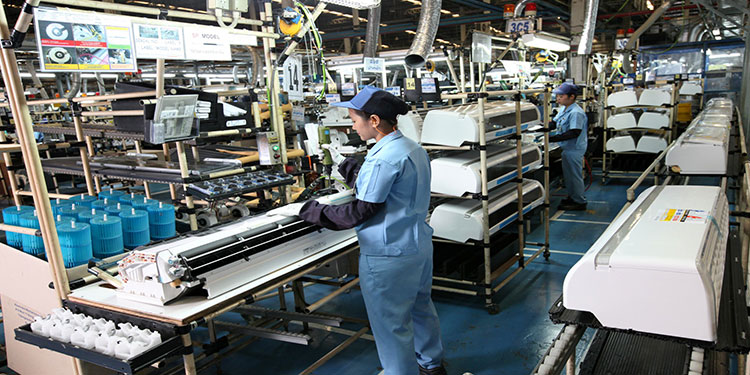
The manufacturer of Japanese air conditioners, Daikin, is increasing its production footprint in Africa. The company wants to take advantage of the fact that temperatures in Africa have risen more quickly than the global average over the past 60 years due to global warming and reproduce its success in India, another hot market with similar dimensions. The company is in the midst of procuring a manufacturing location in Algeria and has recently opened an assembly facility in Nigeria.
Daikin has struggled to compete with Chinese and Korean rivals, LG and Gree Electric, because of the hefty import duties and costs involved in bringing completed goods into Africa. It is now projected that Daikin barely accounts for 2-3% of the African air conditioner market. Chinese brands dominate the remainder. Daikin thinks it can compete with other foreign brands in Africa by producing locally.
Components are shipped from an Indian Daikin plant to the assembly plant in Nigeria. Daikin is trying to reduce its tariff costs by importing parts from India that are comparatively inexpensive. Daikin hopes to sell its air conditioners for between US$400 and US$540 using this tactic. The company thinks that because its products use less power than those of Chinese companies, African consumers will be drawn to them even though their price range is greater.
Additionally, Daikin is well-represented in East Africa. Even though air conditioners made in India are now supplied to Kenya and Tanzania, Daikin wants to lower the cost of their product even further. To increase accessibility to its air conditioners, it has launched a pay-as-you-go subscription service in Tanzania. Through a smartphone app, business clients, such as eateries, pharmacies and beauty parlours, can activate the air conditioners for slightly more than $1 per day (weekly and monthly plans are available). These clients are responsible for paying the installation and electricity costs, nevertheless. However, Daikin is still the owner of the air conditioners. Here, the goal is to persuade clients to finally purchase the units in full.
Despite having 18% of the world’s population, just 3% of the air conditioner market is found in Africa. However, the Global South’s air conditioner industry is expected to expand as a result of the continent’s rapid urbanisation and the rising temperatures brought on by global warming. Africa has already warmed by more than 1°C since 1901, according to the Intergovernmental Panel on Climate Change (IPCC).
